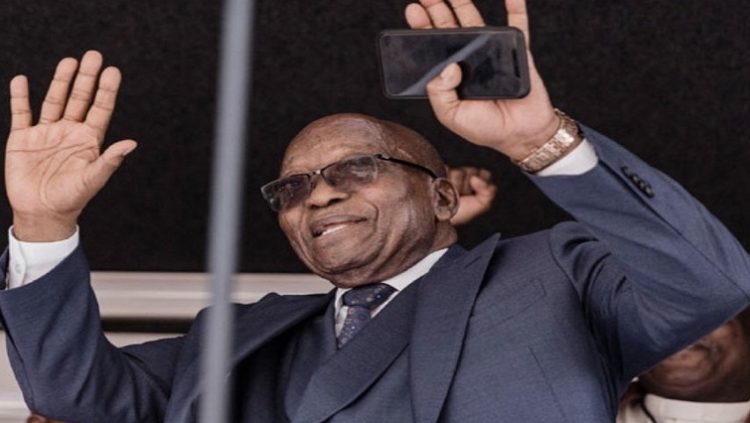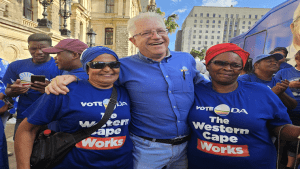The Democratic Alliance’s (DA) shadow minister for Justice and Constitutional Development Glynnis Breytenbach, has called the release of former President Jacob Zuma, from the Estcourt Prison, on Friday morning after being processed-without having served the remainder of his sentence, a disgrace.
Breytenbach says this decision allowed the commissioner to wash his hands off sending Zuma back to prison.
She says, “The decision taken by the commissioner of course allows him to wash his hands in innocence and his decision is of course that Zuma, must return to prison. He’s allowed to carry out this so called remission process from the president, so Zuma walks in the door and signs his name on a piece of paper and walks straight out again, and so he effectively is allowed to stand clear. The ham-fisted defence by the Minister Lamola, was nothing short of disgraceful, suggesting that this is a legitimate process that began in April, and has anything at all to do with overcrowding is just a joke.”
VIDEO: Breytenbach on Zuma’s release:
Remission programme
Legal expert Dr Tsietsi Ramatsekisa, says that the newly instituted remission programme that saw Zuma, avoid returning to prison, to complete his sentence as per the Constitutional Court order, is provided for in South Africa’s legal framework.
As per the process, Zuma present himself on Friday morning at the Estcourt prison, was processed and then released, as a beneficiary of the remission process extended to non violent offenders.
Lamola, said that the remission provision had been in place since April.
Ramatsekisa says that remission and parole are separate processes.
“The two are different regimes, the parole is done in terms of also the Correctional Services Act, there’s a specific provision that deals with that, and that also goes to what we call the parole board. But, this one is a special regime that has been created by the executive, using different provision in order to reduce the issue of over concentration in the prison facilities.”
VIDEO: Interview with Dr Tsietsi Ramatsekisa:






